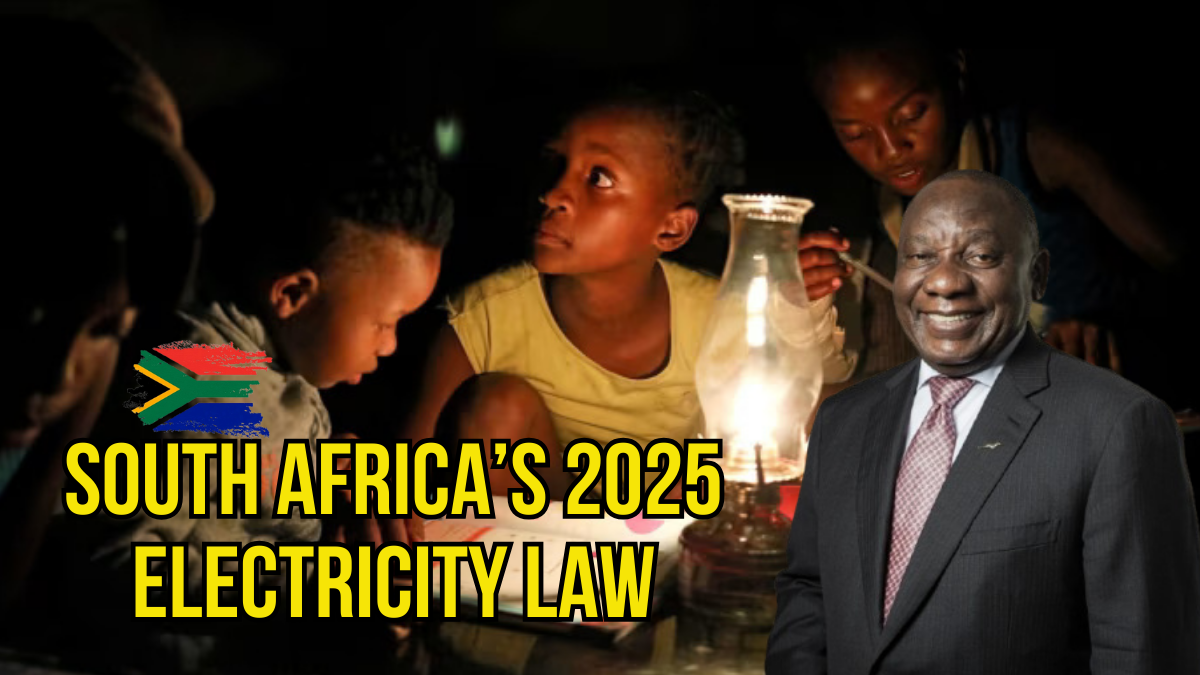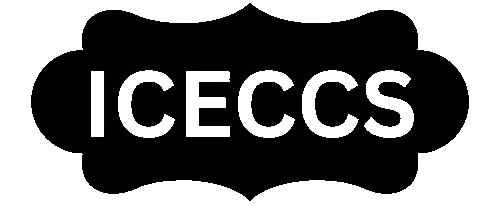South Africa is entering a new era in its electricity sector with the Electricity Regulation Amendment Act set to take effect in 2025. These sweeping reforms are designed to modernize the nation’s energy infrastructure, promote renewable energy adoption, and introduce real competition to a market long dominated by a single provider.

The changes are not only expected to improve supply reliability but also give consumers more control over their electricity sources and prices in the long run.
Summary Table: South Africa’s 2025 Electricity Law
| Field | Details |
|---|---|
| Law Name | Electricity Regulation Amendment Act, 2025 |
| Effective Year | 2025 |
| Key Changes | Opens electricity market to competition, establishes independent Transmission System Operator (TSO), promotes renewable energy |
| Main Beneficiaries | Households, businesses, Independent Power Producers (IPPs) |
| Impact | More supplier choices, renewable energy growth, gradual price adjustments |
| Official Site | National Energy Regulator of South Africa (NERSA) |
Breaking Eskom’s Monopoly
For decades, Eskom has held near-total control over electricity generation and distribution in South Africa. This monopoly meant that households and businesses had no choice in their electricity provider.
Under the new law, an independent Transmission System Operator (TSO) will be established, initially supported by the National Transmission Company of South Africa (NTCSA). This shift ensures fair and impartial access to the grid, allowing both public and private electricity producers to compete.
What this means for you:
In the coming years, South Africans will be able to choose their electricity provider, creating a more competitive environment that could eventually lead to better service and more affordable rates.
Creating a Competitive Wholesale Market
Historically, electricity trading in South Africa was tightly controlled and operated through state-run auctions at fixed intervals. The reforms open the door for Independent Power Producers (IPPs) — especially those generating renewable energy — to compete in a day-ahead market, where electricity can be traded hourly.
This near real-time trading system ensures a closer match between supply and demand, which helps prevent shortages and reduces inefficiencies.
Key Benefit:
Renewable energy producers, such as solar and wind farms, will now have the same market access as traditional power stations, encouraging cleaner energy production.
Driving Renewable Energy and Storage Solutions
The Electricity Regulation Amendment Act does more than increase competition — it actively encourages clean energy development. Investments in battery storage systems and smart grid technologies will help balance the intermittent nature of renewable energy sources like wind and solar.
Community energy projects — such as neighborhood solar cooperatives — will also be promoted, allowing local communities to generate, store, and use their own electricity. This is expected to improve access to energy in remote or underserved areas.
Will Electricity Prices Go Down?
A major question for South Africans is whether these reforms will make electricity cheaper. While the long-term goal is to reduce costs through competition, experts warn that prices may remain stable or even rise slightly during the initial transition.
The National Energy Regulator of South Africa (NERSA) will continue to set and regulate tariffs to ensure grid stability, fair provider returns, and consumer protection.
How Consumers Can Prepare Now
While the full benefits of the reforms will take time, individuals and businesses can start preparing by:
- Monitoring electricity bills for any changes in suppliers or billing formats.
- Exploring rooftop solar or small-scale renewable investments to reduce dependency on the grid.
- Staying informed through official government updates and energy sector news.
- Evaluating potential suppliers once competitive providers become available.
Why This Reform is a Turning Point
The 2025 reforms represent more than just structural changes — they are a strategic shift toward energy independence, sustainability, and innovation.
By dismantling a decades-long monopoly, encouraging diverse energy sources, and opening the market to competition, South Africa aims to build a cleaner, more reliable, and affordable electricity system that benefits everyone from households to large industries.
FAQs: frequently Asked Questions
Q1: When will the new electricity law take effect?
A: It will be implemented in 2025, with competitive market operations rolling out in phases.
Q2: Can households choose their electricity provider under the new law?
A: Yes. Once the competitive market is fully active, households and businesses can select their preferred electricity supplier.
Q3: Will electricity prices drop immediately after the reform?
A: Not right away. Prices may stay the same or rise slightly at first, but competition is expected to lower costs over time.
Q4: What role will renewable energy play in the new system?
A: Renewable energy will be central, with incentives for battery storage and smart grid adoption.
Q5: What is the Transmission System Operator (TSO)?
A: The TSO is an independent body responsible for managing the electricity grid and ensuring fair access for all providers.
Final Word – A New Energy Future for South Africa
The Electricity Regulation Amendment Act is a bold move toward a modernized and competitive electricity market. While challenges are expected during the transition, the potential benefits — from lower prices to cleaner energy — make it one of the most important policy shifts in South Africa’s recent history.
Consumers who prepare early, embrace renewable options, and stay informed will be best positioned to benefit from this energy transformation.
For More Information Click HERE
